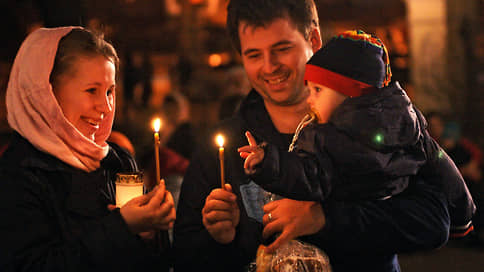The family is the main spiritual bond in Russia, follows from the Russian Field survey
[ad_1]

The family is the main spiritual bond in Russia, follows from a survey on the attitude of citizens to traditional values, conducted by the Russian Field research group. Patriotism is in second place by a wide margin, faith and religion are in third place. But Russians remember much less about freedom and justice. Sociologists also compared the respondents’ answers with the list of officially protected spiritual and moral values from the presidential decree and found a large number of matches. However, for the correct promotion of these values, it would be good to additionally analyze the semantic load that people put in them, the expert warns, otherwise such interpretations can be considered as insincere and rejected.
Answering the question about what can be considered traditional Russian values, almost half of the respondents (43%) named a family. In second place in popularity is patriotism, love for the Motherland (18%). Religious values are important for 11% of Russians, 8% are in favor of respect for elders. Another 7% remembered children. But friendship, freedom and justice were mentioned only by 2% of the respondents. The question was open-ended, meaning respondents could name any number of values they considered important. And here it turned out that the list of those among Russians is quite short: many could not name more than one value. 18% found it difficult to answer the question at all, and 2% said that there were no such values.
The All-Russian initiative telephone survey was conducted on a representative sample on August 8-14, 2023 by order of the member of the Civic Chamber Alexander Asafov. 1600 respondents participated in the survey, the margin of error does not exceed 2.45%.
The answers of the respondents are largely consistent with the list contained in the presidential decree of 2022 on the basics of state policy to preserve and strengthen traditional spiritual and moral values, sociologists note.
So, in the top three in terms of frequency of mentions were
- “a strong family”,
- “high moral ideals” (if we mean culture, love, honesty, hospitality, fidelity and friendship mentioned by the respondents),
- as well as patriotism.
The initiator of the survey, political scientist Alexander Asafov, says that the results of the study generally confirm the value orientations that formed the basis of the worldview model formulated by the participants in the DNA of Russia project. They are also enshrined in a number of state regulations, he recalls, including amendments to the Constitution and the aforementioned presidential decree. The scientists were right, and this model really confirms our worldview, the political scientist states: in particular, the family is a fundamental value in Russian society (while in Europe it is the individual and his values, and in Asian civilization the team is primary).
“Typically, we see that if people are asked a question about values, then we will not get clear formulations,” notes Mr. Asafov. “Everyone feels the same, but they formulate differently.” This is indirectly confirmed by a small number of answers to an open question, which allows you to list an unlimited number of options. “People are not used to talking about it, they name only the most important for themselves, because for a long time there was no work to explain values and their importance,” the political scientist explains. So the main task for the future is the formation of a certain common set of meanings and ideas – in fact, this is what new educational projects are aimed at, some of which will start on September 1, recalls Alexander Asafov.
The Foundation for the Development of Civil Society (ForGO) in 2014 also conducted a study in which he studied the values of Russians. Then the respondents noted the common history of the country (92.3%), the common traditions (89.5%), the common culture (88.9%) as very important unifying factors. As the “key foundations of self-consciousness” of Russians, experts then singled out the family (96.2%), children (95.4%), health (95.2%), support for family members (93.9%), communication (90 .6%).
The head of the Forgo, Konstantin Kostin, believes that, based on the Russian Field survey, one can speak not so much about the hierarchy as about the structure of an array of values.
Moreover, specific figures are not so important, although they are essential for open questions. But the key is the moral and mental “portrait” of the population, the expert emphasizes: it is not the conditional first-second-third places that are important, but the array of perceptions of priorities, and it is very indicative. However, for the correct use of survey data in the design of certain information and semantic campaigns to promote the values discussed in the study, an interpretive matrix is needed, argues Mr. Kostin. It is necessary to carefully analyze the semantic load that people put into this or that term, we need a meaningful “embroidery” of basic concepts – what and how people read, so that the same concepts have the same interpretation. Otherwise, lexical forms that inaccurately describe the essence of people’s perception can lead to the fact that there are no emotions behind the right words, and sooner or later this will be rejected or perceived as insincerity, the expert warns: “We saw this situation in the late USSR, and in the 90s.”
[ad_2]
Source link








